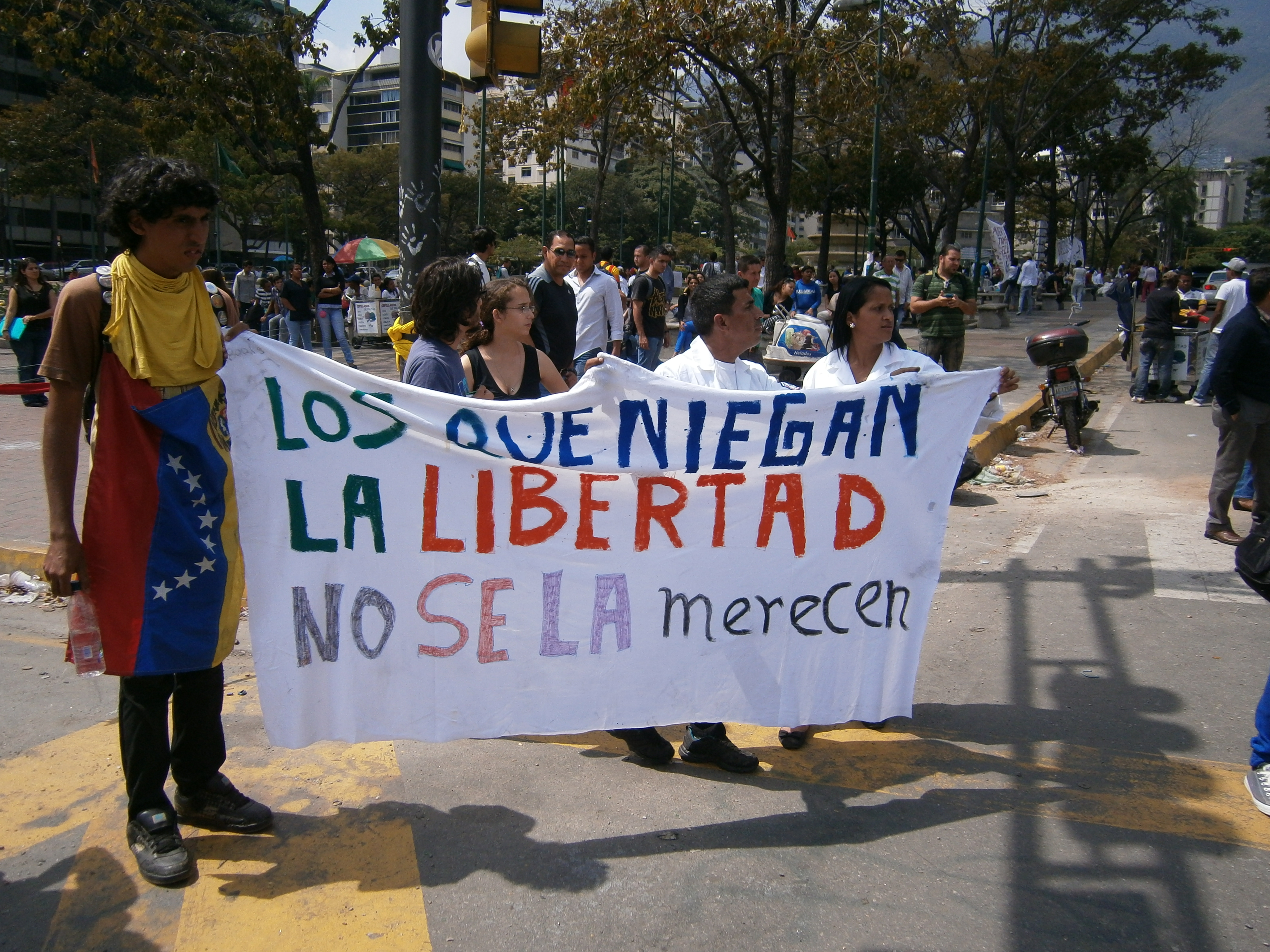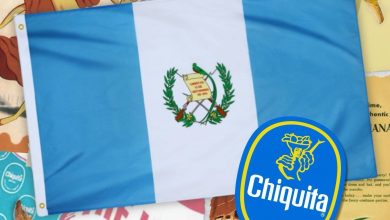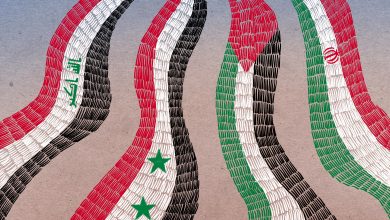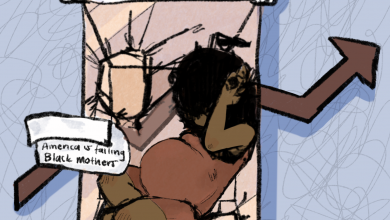¡Viva Venezuela!: A Nation in Uproar

Venezuela protests against the Nicolas Maduro government, Altamira Square via Wikimedia Commons / Public Domain
As the economic crisis magnifies in Venezuela, people have taken to the streets to protest the corruption plaguing the region under Nicolas Maduro’s regime. As of now, 37 people have died and hundreds have been injured as Maduro’s military-backed administration attempts to extinguish protests through military and armed intervention. The number of casualties does not take into account the deaths due to starvation and food shortages in recent years, a product of the government’s failed price and currency controls. As protests escalate and Maduro continues to respond with violent repression, the people of Venezuela remain persistent in their fight for democracy, free expression, and free elections.
With the collapse of oil prices, hyperinflation has led to food and medicine shortages, causing starvation and unsanitary hospital facilities. Food shortages are a product of the government’s attempt to control the prices of goods, causing a loss of profit for the nation’s importers. Consequently, there is little motivation to import goods, leading to long lines to enter grocery stores where Venezuelans wait hours only to find rows of empty shelves. In 2016, bread imports, for instance, decreased 94% compared to the previous year, along with other staple foods. Last year, the government decided to remove price controls for certain goods in order to incentivize imports. However, this action has instead led to a price surge, making food unaffordable for the majority of Venezuelans.
According to the International Monetary Fund (IMF), hyperinflation has contributed to the crisis; inflation is expected to rise over 700% percent in 2017 alone. The growing protests in Venezuelan cities reflect the collision of a weak economy and deteriorating democracy: they are the result of an increasingly undemocratic, and thereby authoritarian, regime that has ignored the economic and political demands of its citizens for years.
Protesters voice the complaints of a generation blaming Maduro’s current administration for their country’s financial, political, and social calamity. The crisis stems from late Venezuelan president Hugo Chavez’s mismanagement of money, as he distributed “vast sums of the state’s money which helped his people in the short term.” Chavez did not invest a substantial amount into the Venezuelan-owned oil company, a major source of revenue for the nation. Divestment has caused a decline in oil production met with degenerating oil prices. As a result, profit made from Venezuela’s oil exports has plummeted, a severe financial cost as oil constitutes 95% of the nation’s export revenue. Moreover, as inflation skyrockets, the standard of living in Venezuela has degenerated further. In addition, Maduro’s choice to use federal money to resolve debts rather than invest in ending food scarcity has contributed to a growing economic crisis.
However, economic concerns are not the only source of anger for Venezuelans; Maduro’s aspiration to maintain a tighter grip on power has motivated an increase in social uprisings. The protests that have erupted in recent weeks are specifically a response to the Supreme Court’s decision to silence the National Assembly in mid-March, Venezuela’s legislative branch largely occupied by Maduro’s opposition. The opposition has witnessed an intensification in popularity, winning a two-thirds majority in Congress during 2015’s congressional elections. Consequently, the effort to silence an increasingly popular party has been met with protests. As the opposition threatens the current regime, Maduro has taken measures to avert any probable loss of power. Maduro’s attempt to rewrite the constitution to evade an upcoming election, and a potential electoral loss for his United Socialist Party, signal an effort to further centralize his power, motivating cries for democracy and free elections.
Specifically, the protests in Caracas, Venezuela’s capital, have received the most media attention. Photos show protesters of all ages marching through the cities’ streets, waving the Venezuelan flag and carrying anti-Maduro posters, while blockades of military vehicles fire teargas and rubber bullets at the crowds.
On May 6, women across Caracas led a protest deemed by the leading opposition party as a “women’s march against repression.” Dressed in white, the march was met with military forces, while Venezuelan women carried roses to police, attempting to symbolize a peaceful march.
While protests aim to be non-militant, violence has erupted in the midst of the marches as protesters respond to the countless military attacks. A Venezuelan woman, Caterina Ciarcelluti, gained international attention as photos surfaced of her throwing rocks at military barricades—a symbol of resistance.
In prior protests, acts of peaceful resistance have also garnered notice. In a recent march, the music of a young violinist echoed through the streets, juxtaposed by the presence of military officers. Playing the national anthem, “Glory to the Brave People,” the music was a source of hope, a reminder that the fight for liberty in Venezuela is a worthy one.
As protests increase, the national anthem provides a mirrored image of Venezuela’s contemporary fight for democracy, reminding the protesters of their ancestor’s resistance with words that carry haunting relevance: ¡Muera la opresión!




